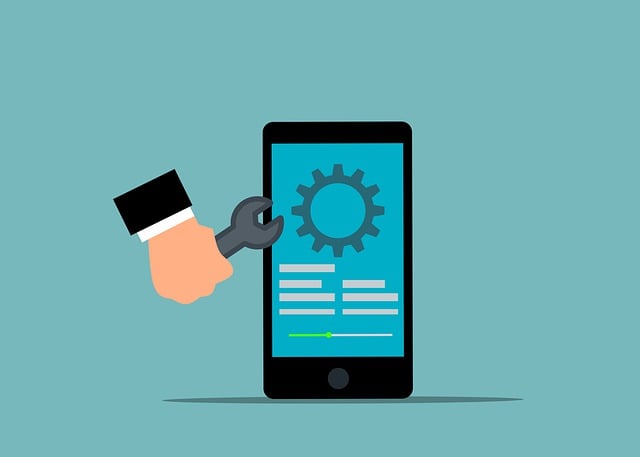In the digital age, Concord residents face a growing issue with robocalls violating privacy laws like the TCPA. To combat this, affected residents can consult spam call lawyers or TCPA law firms in New Hampshire for legal guidance on their rights and strategies to stop unwanted calls, protecting their mental peace from automated spam and preventing future violations.
“In today’s digital age, robocalls have become a ubiquitous yet distressing phenomenon, impacting millions worldwide. This article delves into the specific effects on the mental health of Concord, New Hampshire residents, exploring the prevalence and psychological toll of these automated calls. We navigate the legal landscape, highlighting the Telephone Consumer Protection Act (TCPA) and state laws designed to combat spam calls. Furthermore, we offer practical strategies to mitigate robocall distress and direct affected individuals to available resources for support, emphasizing the importance of knowing one’s rights and access to help in New Hampshire.”
The Prevalence of Robocalls in Concord, New Hampshire
In today’s digital era, Concord residents, like many others across the nation, face a growing nuisance from robocalls. These automated phone calls, often advertising products or services, have become increasingly prevalent, leaving many New Hampshire citizens feeling frustrated and disturbed. With the rise of advanced technology, spam call rings have found new ways to bombard people with unwanted messages, adding an extra layer of stress to their daily lives.
The problem is further exacerbated by the fact that robocalls often violate consumer privacy laws, such as the Telephone Consumer Protection Act (TCPA). This federal law prohibits automated phone calls without prior express consent. Despite these regulations, spam call rings continue their aggressive marketing tactics, prompting many Concord residents to seek solutions to stop these relentless calls. Those affected can turn to experienced spam call lawyers or law firms specializing in TCPA cases in New Hampshire for guidance and legal recourse. By understanding their rights under the law, residents can take proactive steps to curb these unwanted intrusions and protect their mental peace.
Psychological Effects of Spam Calls on Residents
The constant barrage of unsolicited phone calls, often referred to as robocalls, can have a profound impact on an individual’s mental health and well-being. These automated spam calls, while often carrying promotional messages or scams, disrupt residents’ peace and contribute to heightened stress levels. New Hampshire residents, much like many others across the country, face this growing issue. The sheer volume of these calls can induce anxiety, leading to increased heart rate and difficulty concentrating.
In a world where privacy is increasingly threatened by technology, spam calls have become a modern nuisance. New Hampshire’s laws, such as those concerning TCPA (Telephone Consumer Protection Act), offer some protection against excessive or unauthorized robocalls. Residents facing persistent spam calls can take action by registering on the National Do Not Call Registry, blocking numbers, and seeking legal counsel from experienced Spam Call law firms in New Hampshire to understand their rights and available remedies, including potential compensation for violations of TCPA.
Exploring the Legal Framework: TCPA and New Hampshire Laws
In the ever-evolving digital landscape, understanding the legal framework surrounding robocalls and their impact on mental health is crucial, especially for Concord residents. The Telephone Consumer Protection Act (TCPA) serves as a federal law in the United States, including New Hampshire, that restricts certain types of automated telemarketing calls, often known as robocalls. This legislation aims to protect consumers from unwanted or abusive phone marketing practices, ensuring their peace of mind and privacy.
New Hampshire laws further reinforce these federal protections, providing residents with additional safeguards against spam calls. If you’re tired of receiving relentless robocalls, knowing your rights is the first step. Consider consulting a reputable spam call law firm or lawyer for TCPA in New Hampshire who can guide you on how to stop spam calls effectively and legally. There are various strategies available, from registering with Do-Not-Call lists to seeking legal remedies against persistent violators.
Strategies to Combat and Reduce Robocall Distress
Robocalls can be incredibly distressing, leading to heightened stress and anxiety among recipients. To combat this growing issue, Concord residents have several strategies at their disposal. First, consider registering your number on the National Do Not Call Registry, which restricts most telemarketing calls. Second, invest in a call-blocking app or phone that filters out unwanted numbers. Many modern smartphones come with built-in call screening features.
Additionally, being proactive with spam call law firms in New Hampshire can make a significant difference. If you suspect illegal robocalls, report them to your service provider and the Federal Trade Commission (FTC). The FTC has strict regulations, including the Telemarketing Sales Rule (TSR), aimed at curbing spam calls. Engaging a lawyer for TCPA (Telephone Consumer Protection Act) in New Hampshire can also help enforce your rights and deter future violations.
Resources and Support for Affected Individuals: Finding Help in New Hampshire
For Concord residents dealing with robocalls, there are several resources and support options available to combat this growing issue. The first step is understanding your rights as a consumer under the Telephone Consumer Protection Act (TCPA), a federal law designed to curb unwanted telemarketing practices. A reputable spam call law firm or lawyers specializing in TCPA cases in New Hampshire can provide guidance on how to stop spam calls and help individuals recover from the mental health impacts that these relentless calls can cause.
New Hampshire residents affected by excessive robocalls can take proactive measures, such as registering their phone numbers on Do Not Call lists, blocking unknown numbers, and reporting suspicious calls to relevant authorities. Additionally, local support groups or counseling services may offer resources tailored to managing stress and anxiety related to unwanted phone calls. Remember, seeking help is a sign of strength, and with the right guidance, affected individuals can reclaim their peace of mind in this digital age.






